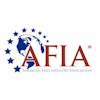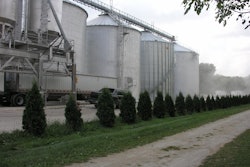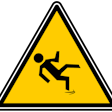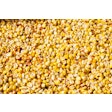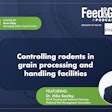The Food Safety Modernization Act (FSMA) was signed into law a little over a year ago — on January 4, 2011. According to the U.S. Food and Drug Administration, it is the “most sweeping reform of our food safety laws in more than 70 years, and aims to ensure the U.S. food supply is safe by shifting the focus from responding to contamination to preventing it.” Registration under this new law is not only required of manufacturers of human food products — but also pet food and animal feed manufacturers — thus our focus on this legislation and its management implication in this month’s column. In addition, grain that is processed for human or animal food will fall under FSMA, so many grain handlers will also need to look at implications of and compliance with these new regulations.
We understand that additional regulations are not popular and you may be tempted to stop reading right now. We urge you to resist that temptation, keep reading to learn more about the regulations so you can develop a proactive approach to having your business remain compliant and enjoy success. In the following section we present an overview of the changing regulatory environment, to provide some perspective. Then we highlight the current changes affecting the feed and grain industry. In the final section we suggest some approaches you as the manager could adopt to ensure that your business is both compliant and can enjoy business success and profitability.
Changing regulatory environment
Over recent years, many observers might argue that the Food and Drug Administration (FDA) has transformed from a regulatory agency to a public health agency. Recent actions by FDA highlight this change in thinking — a case in point was the nation’s second-largest processor of pistachios agreeing to recall its entire 2008 crop despite no confirmed illnesses. This was primarily an issue with sanitation practices and Salmonella found in the processing environment — there were food safety concerns, but this was a “proactive/preemptive response,” and there were no documented illnesses attributed to this pathogen (California-based Setton Farms was the firm involved, and according to press releases at the time “…health officials stressed that this is how the food safety net should work: By recalling products to prevent an illness outbreak, rather than reacting after an illness has spread.”) This is a very different mindset than has been in place in the past, and is part of the discussion that led to passage of the FSMA. The legislation was supported by many of the major food trade organizations based on the following issues: 1) A significant feeling that “all ships rise and fall together on the tide of public opinion,” in other words — a problem in one area of the food industry negatively impacts many of the other areas;2) Imports should be equally as safe as domestic foods; and 3) No company should be allowed a competitive advantage by taking food safety shortcuts.
The Food Safety Modernization Act represents the most significant expansion of food safety requirements and FDA food safety authority since the original enactment of the Food, Drug and Cosmetic Act (FDCA) of 1938 which broadened the powers of the FDA (so named in congressional action in 1930). It grants the FDA a number of new powers, including mandatory recall authority. Specifically, it covers the following highlighted areas (this is a non-exhaustive list): Traceability, recordkeeping and expanded records access (sections 101, 204); Certification/accreditation of third party auditors (section 307); Laboratory accreditation (section 202 and others); Whistle blower protection (section 402); Sanitary transportation of food (section 111); Improving the Reportable Food Registry (section 211); and Fees (section 107), increased inspection of facilities, administrative detention, food defense, preventive controls, produce safety standards, food safety plans and many other requirements.
FSMA Highlights Enacted Rules Applying to Both Human Food and Animal Feed
Mandatory Recall Authority
Under FSMA, FDA may force a recall of a product if: 1) There is a reasonable probability that the food is adulterated or misbranded; 2) The food or feed will cause serious adverse health response or death; and 3) A company refuses to voluntarily start a recall. If the product in violation is not voluntarily recalled by a firm, FDA will issue a recall order and must provide a hearing within two days of the order. Refusal to comply can lead to injunction, criminal charges, and civil fines.
Another authority under the new law is something called “Administrative Detention.” Here FDA has the authority to detain products it believes are in violation of FDA rules, and this requires only a “reason to believe” that the food or feed is adulterated or misbranded. Products may be detained up to 20 days, with a 10 day extension possible.
FSMA also provides what is called “Whistle-Blower Protection.” Under this provision, employees have the right to report violations of FSMA or FDCA, to their employer or authorities with no retribution, discrimination or loss of their job. If the employee feels they have been subject to retribution, they may report concerns to the U.S. Department of Labor, who will assign Occupational Safety and Health Administration (OSHA) to investigate. If found liable, a firm may owe for back pay, benefits, damages, legal fees, litigation costs and witness fees.
Another area the new law covers is “Enhanced Record Access.” This comes along with the “reasonable belief” clause cited above — where FDA may believe that a food or feed will cause serious adverse health effects. An example of serious adverse health impact would be horse feed contaminated with elevated levels of monensin antibiotic. In these cases, the firm must provide access to records for the product in question as well as access to records for any other article of food or feed that may also have been affected. This access pertains to processing, packing, distribution, receipt, holding or importation records.
FSMA also requires manufacturers to register with FDA and re-registration is required every two years. This registration commences October, 2012. New regulations also provide for suspension of facility registration by FDA if there is reasonable probability of causing serious adverse health consequences or death to humans or animals.
Pending Regulations Under FSMA
Preventive Standards and Food Safety Plans
Animal food facilities will be required to analyze food or feed hazards in their manufacturing systems, identify and implement preventive controls to these hazards, monitor the controls and maintain monitoring records, and conduct verification activities. FDA will be using a HACCP (Hazard Analysis Critical Control Points) approach in developing this new regulation, and firms must document their controls through a “food safety plan.” Some example controls for animal feed include correct labeling of pet and animal feed to take into account different nutritional requirements, control of feed nutrient content, control of Salmonella in pet food (could cause illness in humans by cross-contact during pet feeding), and finally control of aflatoxin contamination in dairy feed (which could cause carcinogenic residue in milk consumed by humans).
Prevention Standards mandates: Protection against intentional adulteration (food defense)
These regulations deal with the prevention of malicious attacks on our food system, and will require vulnerability assessments of production facilities. These assessments will then be used to develop mitigation strategies to prevent food terrorism incidents.
Prevention Standards Mandates: Sanitary transportation of food
This section addresses implementation of the Sanitary Food Transportation Act of 2005, which requires persons engaged in food transportation to use sanitary transportation practices to ensure that food is not transported under conditions that may render it adulterated. Originally due out seven years ago, this regulation will have a significant impact on rail and truck transporters of feed.
Voluntary Qualified Import Program
This program is designed to accelerate entry process of imported products. It will use 3rd party auditors to confirm the compliance of foreign suppliers to FSMA and FDCA requirements.
Third Party Auditor Certification
FDA will publish special regulations specifying how 3rd party auditors will be licensed to perform inspections of foreign facilities.
How Should Management Respond?
Is there any good news in the regulations and red tape described above? Is there a silver lining in these cloudy skies? As with much of life and business — it depends on how you look at it and how you respond. First off, the requirements are the law and aren’t suggestions. Fortunately, there will be a comment period where the feed industry will have opportunity to provide input back to FDA before regulations are finalized. Secondly, any process which has as a goal to prevent problems before they occur is probably worth taking a look at, and figuring out how to implement in your feed manufacturing business.
Implementation Strategies
Stage I
In this new regulatory environment under FSMA, the first order of business should be to educate your management team. You need to become familiar with the requirements — of the law and perform an initial gap assessment of FSMA compliance — i.e. where are there areas you meet the regulations and where are the areas you don’t? Secondly, you as manager should guide your feed business to develop and implement a system to actively manage feed safety to include the following items: 1.) Find the balance between the resources you have available and your business objectives; 2.) Make a management/executive commitment to feed safety and communicate this to all parties involved (put this commitment in your strategic plan, and communicate this to all stakeholders: employees and customers alike); 3.) Establish a budget line item for feed safety and regulatory compliance.
Stage II
Moving into stage two strategic response phase involves establishing a regulatory compliance team. This team is charged with implementing compliance to FSMA, developing an emergency response plan to deal with potential feed safety/contamination issues; developing a recall program to inform customers of problems if uncovered and bring back/dispose of product; putting together an internal audit program to track the effectiveness of your feed safety program; and finally tracking and managing whistle blower issues.
Stage III
After the regulatory team has been established, you need to make sure that your feed safety programs are in place and are continuously monitored. These key areas of best practice will be spelled out in the soon to be released preventive stands mandates by FDA. The controls will need to be documented in a feed safety plan.
Stage IV
The final stage of managing compliance with FSMA involves working with in-house or external counsel to bring them up to speed on compliance issues and associated liability concerns. Another strongly suggested management strategy is to develop a set of written FDA compliance policies and guidelines. The audit program should be built upon and a corrective action system (feedback loop) should be developed. This is the stage when emphasis should be put on education and training, with a focus on awareness of the regulations and working with your staff so that they understand proper compliance methods.
A Culture of Doing the Right Thing
Doing the right thing in this environment involves due diligence on your part and a focus on best practices. Management is called upon to set the example, so as to build a culture of feed safety. Attention to this principle will set the stage for continued, prosperous business and fewer problems down the road.
